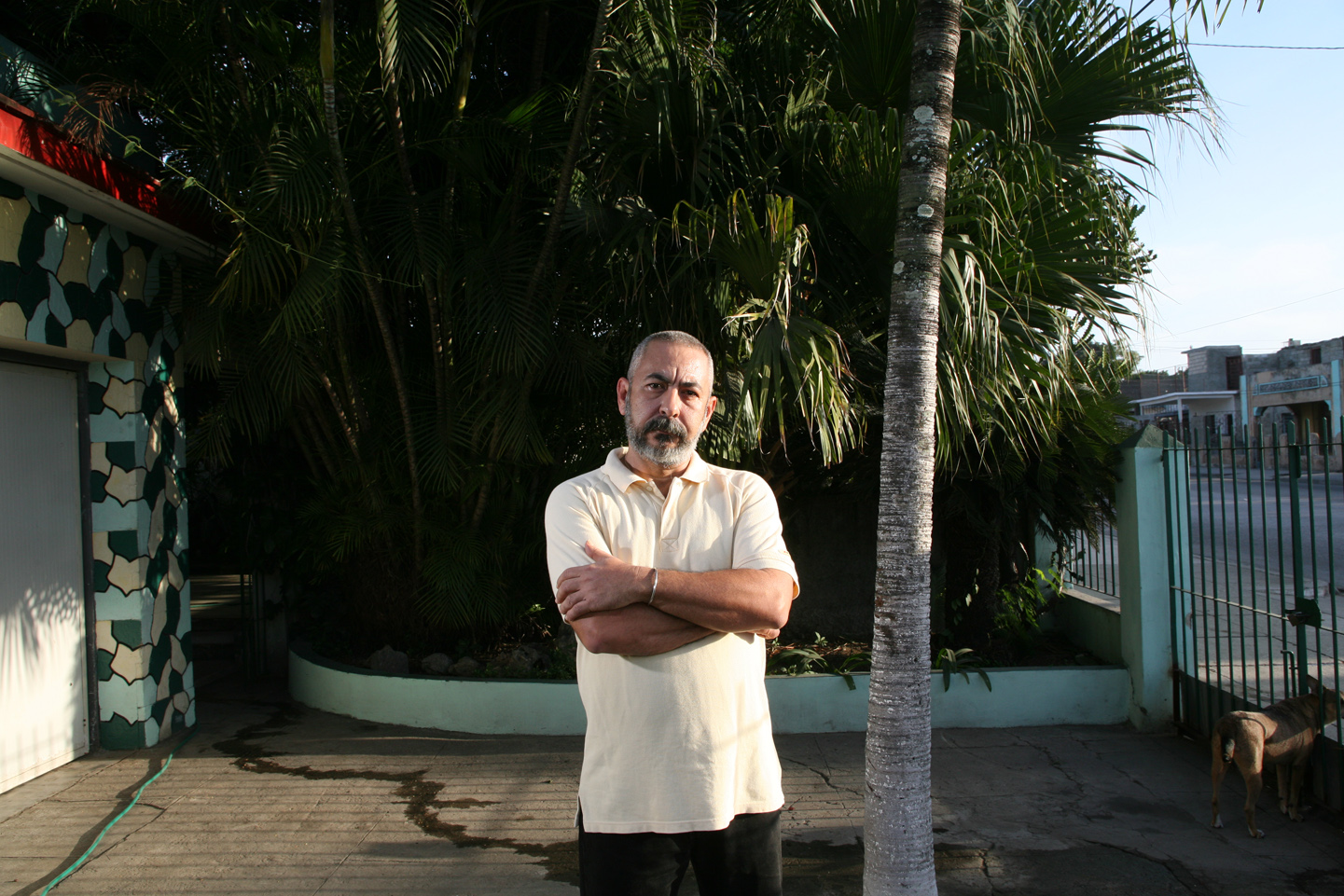- Leonardo Padura Fuentes
Infobox Artist
bgcolour = #6495ED
name = Leonardo Padura Fuentes

imagesize = 200px
caption = Leonardo Padura Fuentes
birthdate = 1955
location =Cuba ,Havana
nationality = Cuban
movement =Novel ,journalism
works =Fiebre de caballos ,Adios, Hemingway Leonardo Padura Fuentes (born
1955 ) is aCuba nnovel ist and journalist.As of 2007 , he is one of Cuba's best known writers internationally. In English and some other languages, he is often referred to by the shorter form of his name, Leonardo Padura. He has written movie scripts, two books of short stories and a series of detective novels translated into 10 languages.Life and career
Born in
Havana , Padura took a degree in Latin American literature at the University of Havana.In 1980 he first work to prominence as an investigative journalist in a literary magazine called
Caimán Barbudo a well-established publication that is still in print today. Between 1983 and 1984, he wrote his first short novelFiebre de caballos (Horse Fever), which was basically a love story. He then spent the next six years working as a journalist, reporting on a wide range of cultural and historical topics. It was around this time he began to write his first novel featuring Mario Conde, and it was while he was writing, that he realised realised how fundamental his years as a journalist were to his development as a writer. Firstly it gave hime a whole new experience of the country, and secondly, it consequently changed his style with respect to his first book.The fifth in the Mario Conde series entitled
Adios, Hemingway is a murder mystery, (and Padura’s first book translated into English, in 2005). Mario Conde is a cop who would rather be a writer, and admits to feelings of “solidarity with writers, crazy people, and drunkards."It’s not surprising, then, that Leonardo Padura’s prolific pen should take aim at the whole Hemingway-in-Cuba legend. It’s a match-up that needed to happen – hard-working Cuban author stands up to dead American icon. Native son goes toe-to-toe with celebrity expat. And yet “Adios, Hemingway”, despite the seeming threat of its knock-out title, pulls more punches than it throws at old Papa.
Ernest Hemingway and Padura have some common traits: the beard, the occasional guayabera shirt, the keen interest in sports (Padura hoped to become a pro baseball player until he realised. he didn’t have enough strength to be a good hitter. Both men started out as journalists and let their reporter’s eye lead them to a kind of fiction that strives, above all, to tell the truth. And both men chose to live and work away from Havana’s center: Padura in the house, built by his grandfather, where he was born; Hemingway in his “Finca Vigia ” (Lookout Farm), a 19th-century estate situated about 16 kilometres east of Havana.The similarities end abruptly when it comes to matters of character. The hand-written sign on Hemingways’ front gate read: "Uninvited visitors will not be received." Padura is an exceedingly generous host, a man who seems to like nothing better than devoting time to his guests, invited or not.Today, Padura is writing a new novel, “one which is quite complex because it involves the main characters León Trotsky and his murderer Ramón Mercader. It’s a fundamentally historic novel because it is based on two real major figures of the 20th century, but I am trying to recount the story from a fictional viewpoint.”Fact|date=April 2008When asked to explain why he can’t imagine leaving Havana, the setting for all his novels so far, Padura shrugs, than says, “I’m a talkative person. Havana is a place where you can always strike up a conversation with a stranger at a bus stop.”Fact|date=April 2008
Bibliography
* Adios Hemingway, 2005
* Pasado perfecto ("Havana Blue", 2007), 1991
* Vientos de cuaresma" ("Havana Gold", 2008)"), 1994
* Mascaras("Havana Red", 2005), 1997
* Paisaje de otoño ("Havana Black", 2006), 1998.His books are also available in French (including all the books featuring Conde), Italian, Portuguese and German.
External links
* [http://www.shotsmag.co.uk/features2005/padura/padura.html Interview with Padura in Shots ezine]
* [http://www.havana-cultura.com/en/cuban-author/leonardo-padura/cuban-writer.html Interview of Leonardo Padura on Havana-Cultura]References
*Uxo, Carlos, ed. (2006). The Detective Fiction of Leonardo Padura Fuentes. Manchester: Manchester Metropolitan University Press. ISBN 1-870355-11-3. Articles in English and Spanish.
*Wilkinson, Stephen (2006). "Detective Fiction in Cuban Society and Culture". Oxford & Berne: Peter Lang. ISBN 3-03910-698-8 (US 0-8204-7963-2). This book contains four chapters on Padura and a history of the Cuban detective genre.
Wikimedia Foundation. 2010.
